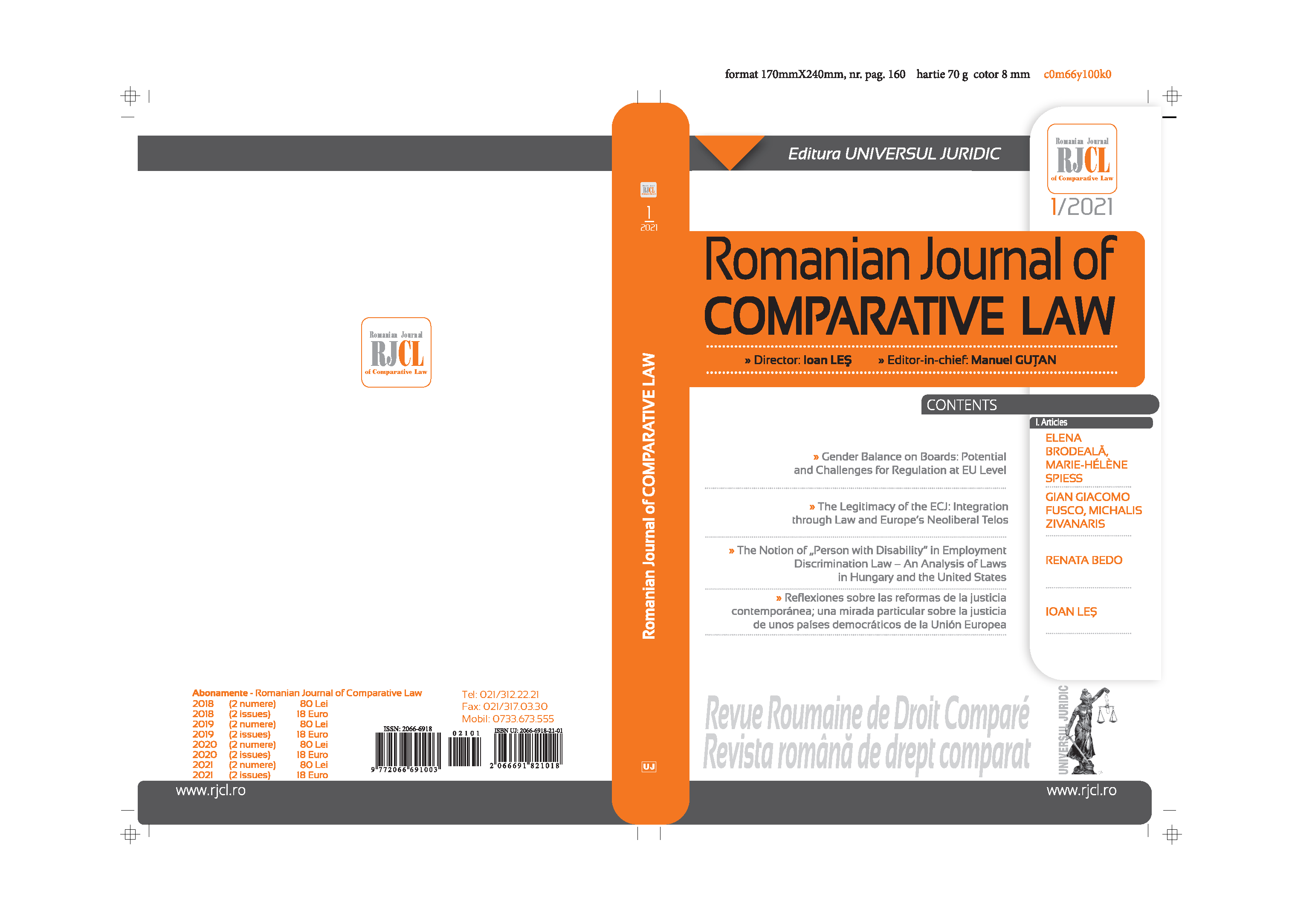The Legitimacy of the ECJ: Integration through Law and Europe’s Neoliberal Telos
The Legitimacy of the ECJ: Integration through Law and Europe’s Neoliberal Telos
Author(s): Gian Giacomo Fusco, Michalis ZivanarisSubject(s): Law, Constitution, Jurisprudence, Civil Law
Published by: Universul Juridic
Keywords: European Court of Justice; Legitimacy; Neoliberalism; European Integration; Judicial Law-Making;
Summary/Abstract: With this article we aim to offer a contribution to the ongoing debate on the legitimacy of the ECJ. The argument we advance is that the legitimacy of the ECJ is dependent on the function the law has in the context of European integration. To the extent that the EU poses itself as a legal enterprise (‘integration through law’), the law becomes an instrument (among others) through which to obtain the political goal of economic integration; and in its operational role the ECJ has upheld such conception of the law. For this reason, the normative conception of legitimacy, grounded on principles derived from the tradition of state’s democratic constitutionalism, does not explain exhaustively the authority and the operational function of the Court. The Court, we argue, draws a substantive part of its legitimacy from its technical (and technocratic) outlook, that is from the capacity of fostering European integration by focusing on seemingly technical, and politically neutral economic questions, neutralising the political agonism by displacing it into the sphere of the juridical.
Journal: Revista Română de Drept Comparat
- Issue Year: 2021
- Issue No: 01
- Page Range: 38-65
- Page Count: 28
- Language: English
- Content File-PDF

